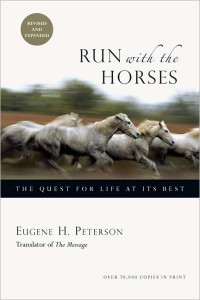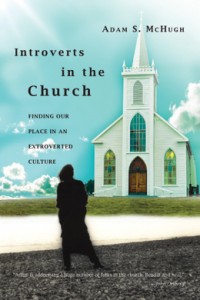Dan Allender is one of my favorite writers and speakers. His talk at the Willow Creek Leadership Summit several years ago, The Intersection of Character and Leadership, was very formative for me. I also thought he sounded exactly like John Malkovich, which is cool. Soon after hearing his talk I picked up his classic book Bold Love, devouring it with sheer delight (and holy conviction).
Somehow his book Sabbath wound up on my bookshelf, but I hadn’t had the opportunity to read it until now. This is an excellent work, and in it Dr. Allender paints a compelling vision for the keeping the Sabbath not as a boring and burdensome day of religious practice and secular neglect, but as a day full of joy and goodness. It is a radically new (for me, at least) understanding of the Sabbath.
 The question at the top of the back cover stopped me in my tracks: “What would you do for twenty-four hours if the only criteria were to pursue your deepest joy?” I had never thought of the Sabbath that way, and the very act of asking the question filled me with great fear and delight. Really? Could I really do that on the Sabbath? I thought I was supposed to be bored and useless on the seventh day? Can it really be a day full of joy, delight, and *gasp* sensuality?
The question at the top of the back cover stopped me in my tracks: “What would you do for twenty-four hours if the only criteria were to pursue your deepest joy?” I had never thought of the Sabbath that way, and the very act of asking the question filled me with great fear and delight. Really? Could I really do that on the Sabbath? I thought I was supposed to be bored and useless on the seventh day? Can it really be a day full of joy, delight, and *gasp* sensuality?
The dominant image in my mind of the Sabbath is of taking a nap on the couch—which sounds pretty nice, actually. But to have permission to take a walk in the woods, to pursue photography, eat a sumptuous meal, drink wine, smoke a fine cigar, listen to beautiful music, enjoy the wonderful company of friends, and to have sex intimate times with my wife? No, not the Sabbath. Your heart’s not supposed to come alive on the Sabbath. It’s a time of fasting from life and enjoyment, not finding the fullness of eternal life on one sacred day each week.
But, according to Allender at least, I’ve been wrong about the Sabbath all my life. Look at his three basic premises of the Sabbath, and see if they don’t undo your own understanding of the seventh day:
The Sabbath is not merely a good idea; it is one of the Ten Commandments. Jesus did not abrogate, cancel, or annul the idea of the Sabbath. In the Ten Commandments, the fourth (Sabbath) is the bridge that takes us from the first three, which focus on God, to the final five, which concentrate on our relationships with others.
The Sabbath is a day of delight for humankind, animals, and the earth; it is not merely a pious day and it is not fundamentally a break, a day off, or a twenty-four-hour vacation.
The Sabbath is a feast day that remembers our leisure in Eden and anticipates our play in the new heavens and earth with family, friends, and strangers for the sake of the glory of God.
I strongly encourage you to read this book and contemplate how you can obey the fourth commandment, and in that obedience may you find rest, joy, and great delight.


